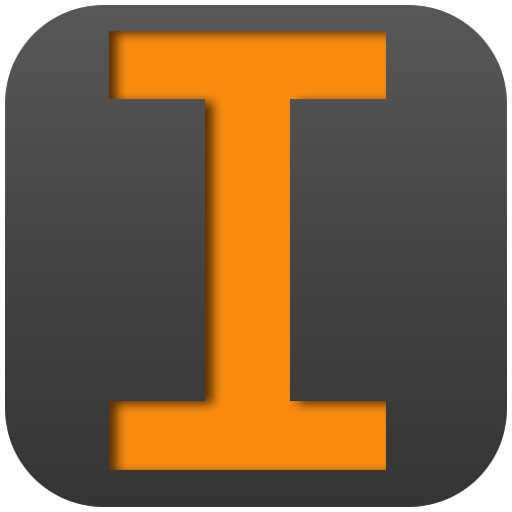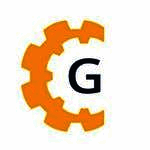Description

CouchDB

IvyBackup
Comprehensive Overview: CouchDB vs IvyBackup
CouchDB and IvyBackup are two distinct software solutions catering to different needs and markets. Here's a comprehensive overview:
CouchDB
a) Primary Functions and Target Markets:
-
Primary Functions:
- CouchDB is an open-source NoSQL database that uses a document-oriented data model. It is designed for local replication and offline-first functionality, providing a high degree of data synchronization across devices.
- Key features include a schema-free JSON format for data storage, powerful query engines with MapReduce, and HTTP-based RESTful API access. It also includes a built-in Web-based administration interface called Fauxton.
- CouchDB emphasizes distributed scaling, easy replication, and horizontal scaling through a decentralized and masterless architecture.
-
Target Markets:
- CouchDB targets developers, enterprises, and organizations that require scalable, highly available database systems. It is ideal for mobile applications, IoT devices, and web applications that require reliable data synchronization and offline access.
b) Market Share and User Base:
- CouchDB is part of the Apache Software Foundation's ecosystem. While it may not be as widely adopted as some other NoSQL databases like MongoDB or Cassandra, it has a dedicated user base, especially among those who need its strong replication and offline capabilities.
- Since it is open-source, exact market share metrics are difficult to pinpoint. However, its presence is notable in fields where distributed databases and high availability are critical.
c) Key Differentiating Factors:
- CouchDB's major differentiator is its focus on data replication and the offline-first model. It has a robust mechanism for synchronizing data between disconnected nodes, which is particularly useful for applications with intermittent connectivity.
- Unlike SQL databases, CouchDB offers a flexible JSON storage system, eliminating the need for a predefined schema.
IvyBackup
a) Primary Functions and Target Markets:
-
Primary Functions:
- IvyBackup is a backup software solution designed for Windows systems. Its primary function is to create and manage backups of files, folders, and system data to prevent data loss.
- Features include incremental and differential backups, encryption options, compression to save space, and scheduling capabilities to automate the backup process.
-
Target Markets:
- IvyBackup is targeted towards individual users, small to medium-sized businesses, and IT professionals looking for an easy-to-use and reliable backup solution.
b) Market Share and User Base:
- IvyBackup operates in a competitive market with numerous backup solutions available. It's a smaller player compared to larger, more established software like Acronis or Norton Ghost but serves a niche for Windows users who prefer straightforward and efficient backup tools.
- Its user base largely consists of those emphasising usability, cost-effectiveness, and software that easily integrates with existing Windows environments.
c) Key Differentiating Factors:
- IvyBackup's strength lies in its simplicity and focus on Windows systems, making it intuitive for users without extensive technical expertise.
- It offers flexible backup options (full, incremental, and differential) with a straightforward interface that simplifies the backup process.
- It emphasizes efficiency and reliability with additional features like data encryption, which appeals to privacy-conscious users.
Conclusion
CouchDB and IvyBackup operate in vastly different domains; CouchDB is a document-oriented database system, while IvyBackup is a backup software solution. They do not directly compete with each other as they target different markets and serve distinct purposes. CouchDB offers a robust database solution for distributed systems and synchronization-heavy applications, while IvyBackup provides an easy-to-use backup tool mainly for individual and small business Windows users. Their differentiation points revolve around their specialized functions and target audiences, demonstrating the innovation present in each sector of software solutions.
Contact Info

Year founded :
Not Available
Not Available
Not Available
United States
http://www.linkedin.com/company/couchdb

Year founded :
Not Available
Not Available
Not Available
Not Available
Not Available
Feature Similarity Breakdown: CouchDB, IvyBackup
CouchDB and IvyBackup serve different primary purposes: CouchDB is a database management system, while IvyBackup is a backup software. Despite their differences, let's break down their features to see if there are any areas of overlap and contrast.
a) Core Features in Common
While these two products are fundamentally different in what they offer, they might share a few high-level comparisons in terms of general software properties:
- Data Management:
- Both are involved with data storage and retrieval. CouchDB is used for managing database data, while IvyBackup deals with file backup and restoration.
- Data Integrity:
- Ensuring the integrity and consistency of data is crucial for both. CouchDB focuses on database integrity across distributed systems, whereas IvyBackup ensures data consistency and reliability in backups.
- Automated Operations:
- Automation plays a crucial role in both platforms. CouchDB automates replication and data distribution, while IvyBackup automates backup processes with scheduling.
b) User Interface Comparison
-
CouchDB:
- CouchDB has a web-based interface called Fauxton, which allows users to manage databases directly from the browser. The interface is primarily functional, focusing on database management tasks such as creating and querying documents, setting up replication, and monitoring the database.
-
IvyBackup:
- IvyBackup typically presents a more graphical user interface designed around ease-of-use for setting up and managing backup tasks. The interface generally guides users through backup configuration processes with wizards and is designed for accessibility to users who may not be technically inclined.
c) Unique Features
-
CouchDB:
-
Replication and Syncing:
- CouchDB offers advanced replication features, allowing databases to sync across different devices and locations, which is particularly useful for offline applications.
-
RESTful HTTP/JSON API:
- CouchDB provides a RESTful JSON API that makes it easy to interact with from various platforms, enhancing its integration capabilities.
-
Distributed, Fault-Tolerant Design:
- CouchDB is designed to be distributed and handle network partitions, making it ideal for high-availability applications.
-
-
IvyBackup:
- Backup Scheduling:
- Offers detailed scheduling options for backups, allowing users to specify exact times and conditions for backup operations.
- Compression and Encryption:
- Features robust compression and encryption options to save space and secure backup data.
- Storage Location Flexibility:
- IvyBackup supports various storage options for backups, including local drives, external storage, and cloud destinations.
- Backup Scheduling:
In essence, CouchDB and IvyBackup cater to entirely different user needs - one dealing with database applications and the other with data backup and recovery. They only overlap in high-level concepts such as data management and automation, with distinct user interfaces and unique features tailored to their specific functions.
Features

Not Available

Not Available
Best Fit Use Cases: CouchDB, IvyBackup
CouchDB Use Cases
a) Types of Businesses or Projects:
-
Web Applications with Synchronization Needs:
- CouchDB is ideal for businesses developing applications where data synchronization across different devices is critical. Its master-master replication feature ensures that data remains consistent across various nodes and locations, which is perfect for offline-first mobile and web applications.
-
Projects Requiring High Availability:
- Enterprises that require continuous availability can benefit from CouchDB's redundancy and replication features. It provides a robust system that can handle failures gracefully, making it suitable for healthcare, finance, and logistics applications where downtime is not an option.
-
Scalable Document Storage:
- For businesses focusing on storing large volumes of JSON documents (e.g., e-commerce platforms, content management systems), CouchDB's schema-free design offers flexibility and ease of use.
-
Big Data and Analytics:
- Projects that involve large-scale data analysis and need a NoSQL solution with flexible schemas can leverage CouchDB. Companies focusing on IoT, real-time analytics, and log aggregation can benefit from its ability to handle massive amounts of structured and semi-structured data.
d) Industry Verticals and Company Sizes:
- Industry Verticals:
- CouchDB is particularly popular in sectors such as technology, media, logistics, and any industry that requires decentralized data handling or offline access to data.
- Company Sizes:
- Suitable for small to medium-sized businesses (SMBs) and enterprises that require a distributed database solution. Its ability to scale horizontally makes it a fit for companies anticipating rapid growth or those already operating on a large scale.
IvyBackup Use Cases
b) Scenarios for Preferred Use:
-
Small to Mid-sized Businesses (SMBs) Seeking Reliable Backup:
- IvyBackup is designed for businesses that need a reliable, easy-to-use, and cost-effective backup solution. It is excellent for small IT teams or individual professionals who require automated or manual backup processes without complex configurations.
-
Individuals or Freelancers:
- Ideal for users who need a simple tool to back up important files and system data. Freelancers managing multiple projects or personal data can use IvyBackup to ensure data security without needing extensive technical expertise.
-
Windows-centric Environments:
- Because it is tailored specifically for Windows systems, IvyBackup works best in environments where Windows is the primary operating system.
d) Industry Verticals and Company Sizes:
-
Industry Verticals:
- IvyBackup is versatile across different industries such as retail, legal, education, and any sector that values data protection for Windows platforms.
-
Company Sizes:
- Primarily targeted at individuals, small businesses, and medium-sized companies that do not possess extensive IT resources or require simple and straightforward backup solutions. It's an excellent choice for companies where the emphasis is on ease of use and efficient data recovery mechanisms without high investment in IT infrastructure.
By targeting different needs — CouchDB for data-intensive and distributed applications, and IvyBackup for secure, simple backup solutions — these products cater to diverse industries and company sizes effectively.
Pricing

Pricing Not Available

Pricing Not Available
Metrics History
Metrics History
Comparing undefined across companies
Conclusion & Final Verdict: CouchDB vs IvyBackup
When comparing CouchDB and IvyBackup, we're essentially comparing two different types of software serving different purposes: CouchDB is a NoSQL database system, while IvyBackup is a backup solution. In terms of overall value and usability, the decision is highly dependent on the context in which these tools are being used. Here's an evaluation on each:
Conclusion and Final Verdict
a) Considering all factors, which product offers the best overall value?
- CouchDB:
- Best suited for developers and organizations needing a scalable, robust NoSQL database solution that supports JSON-like document storage and a powerful map/reduce indexing model. It's ideal for applications requiring offline-first capabilities due to its synchronization features.
- IvyBackup:
- Designed for individual users and small businesses needing a reliable, easy-to-use backup system for Windows. It’s optimal for users who prioritize data safety with minimal fuss and straightforward scheduling and restoration processes.
Given their distinct purposes, the "best overall value" is context-dependent. For developers or enterprises focusing on application development and data management, CouchDB offers more value. Conversely, for individual and small business users needing straightforward data backup, IvyBackup is more valuable.
b) Pros and Cons of Choosing Each Product
-
CouchDB:
- Pros:
- Seamless synchronization and offline-first architecture.
- Schema-free design supports flexible and evolving data models.
- Open-source with a supportive community and extensive documentation.
- Scalability and fault tolerance through distributed nodes.
- Cons:
- May require significant setup and maintenance for optimal performance.
- Potentially steep learning curve for those unfamiliar with NoSQL systems.
- Not a direct "drop-in" replacement for traditional relational databases without redesigning applications.
- Pros:
-
IvyBackup:
- Pros:
- User-friendly interface with straightforward setup.
- Efficient scheduling and automation of backups.
- Wide range of compression and encryption options for security.
- Affordable pricing tailored for small-scale operations.
- Cons:
- Limited to Windows, restricting cross-platform use.
- Designed more for local backups; may require additional setups for complex network backups.
- Less suitable for very large enterprise environments needing extensive data management capabilities.
- Pros:
c) Specific Recommendations for Users Trying to Decide Between CouchDB vs IvyBackup
-
For Developers and Data Engineers:
- Opt for CouchDB if you are working on applications requiring dynamic data structures, offline capabilities, or need database synchronization across devices. It’s also ideal if you plan to handle large volumes of unstructured data that require a high level of scalability.
-
For Individual Users or Small-to-Medium Sized Businesses:
- Consider IvyBackup for straightforward, reliable backup solutions on Windows. It's perfect for users who want minimal intervention in their backup processes and need reliable data recovery options in case of data loss.
-
General Advice:
- Your choice should be guided primarily by your specific needs. If your primary need is data management for an application, CouchDB is the way to go. If your main concern is safeguarding digital assets on a personal computer or small business network, IvyBackup is the more logical option.
Ultimately, these tools serve fundamentally different purposes, and your choice should align with your primary operational needs rather than seeing it as a direct competition between the two.
Add to compare
Add similar companies



